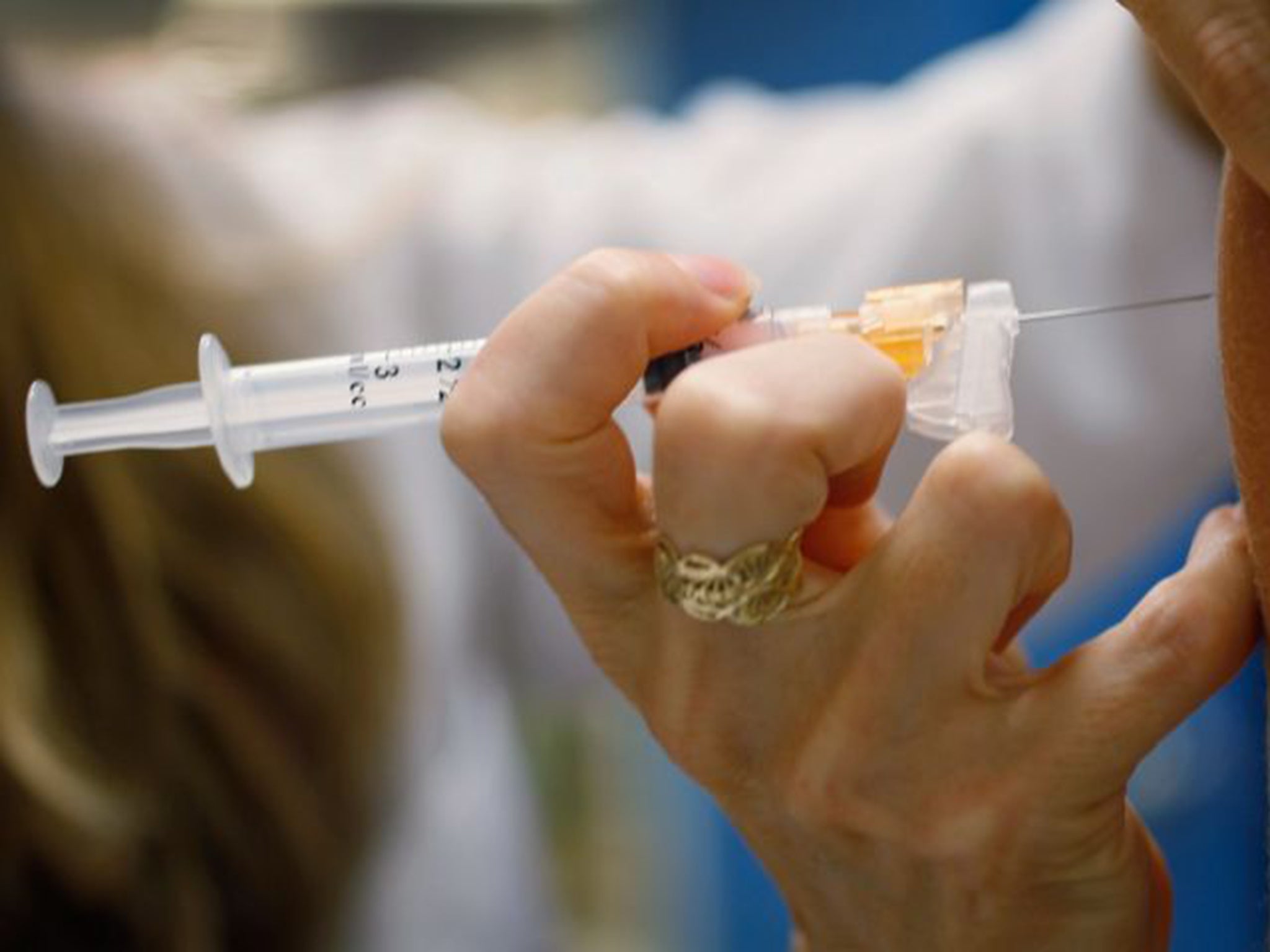HPV vaccine has led to 'significant drop' in cervical cancer rates among UK women, study reveals
Girls are offered their first HPV jabs in year 8

Your support helps us to tell the story
From reproductive rights to climate change to Big Tech, The Independent is on the ground when the story is developing. Whether it's investigating the financials of Elon Musk's pro-Trump PAC or producing our latest documentary, 'The A Word', which shines a light on the American women fighting for reproductive rights, we know how important it is to parse out the facts from the messaging.
At such a critical moment in US history, we need reporters on the ground. Your donation allows us to keep sending journalists to speak to both sides of the story.
The Independent is trusted by Americans across the entire political spectrum. And unlike many other quality news outlets, we choose not to lock Americans out of our reporting and analysis with paywalls. We believe quality journalism should be available to everyone, paid for by those who can afford it.
Your support makes all the difference.A new study has shown the success of the Human Papilloma Virus (HPV) vaccine programme in significantly reducing the number of young women carrying potentially life-threatening infections.
The majority of cervical cancer cases are caused by HPV 16 and HPV 18 strains.
According to data from Public Health England (PHE), these infections decreased by 86 per cent in English women aged 16 to 21 who were eligible for the vaccination as teenagers between 2010 and 2016.
Specifically, the data reveals reductions across five high-risk HPV types in total, which cause around 90 per cent of cervical cancer cases and adds to a body of evidence which suggests the vaccine offers protection against other HPV types that can cause cervical cancer.
PHE also suggested this decline could continue over a long-term timeframe. Mary Ramsay, head of immunisations at PHE, said: "These results are very promising and mean that in years to come we can expect to see significant decreases in cervical cancer, which is currently one of the biggest causes of cancer in women under 35.
"This study also reminds us how important it is to keep vaccination rates high to reduce the spread of this preventable infection.
"I encourage all parents of girls aged 12 to 13 to make sure they take up the offer of this potentially life-saving vaccine."
Cancer charities have welcomed the news. Robert Music, chief executive of Jo's Cervical Cancer Trust, said: "It is extremely positive to see the impact that the vaccination has had on prevalence of cervical cancer-causing HPV infection among vaccinated women.
"One day we hope to see cervical cancer become a disease of the past and it is only through high vaccination rates that we will get there.
"For women who have had the vaccine, it is important to remember it does not offer full protection against cervical cancer so attending cervical screening when invited is still important."
The HPV vaccination programme was first introduced in 2008. An estimated 80 per cent of people aged 15 to 24 have now been vaccinated in the UK.
It is available free on the NHS to all girls from the age of 12 until they turn 18.
Girls in England are routinely offered their first HPV vaccination when they are in year 8 of school, with the second dose being offered six to 12 months later.
Press Association
Join our commenting forum
Join thought-provoking conversations, follow other Independent readers and see their replies
Comments